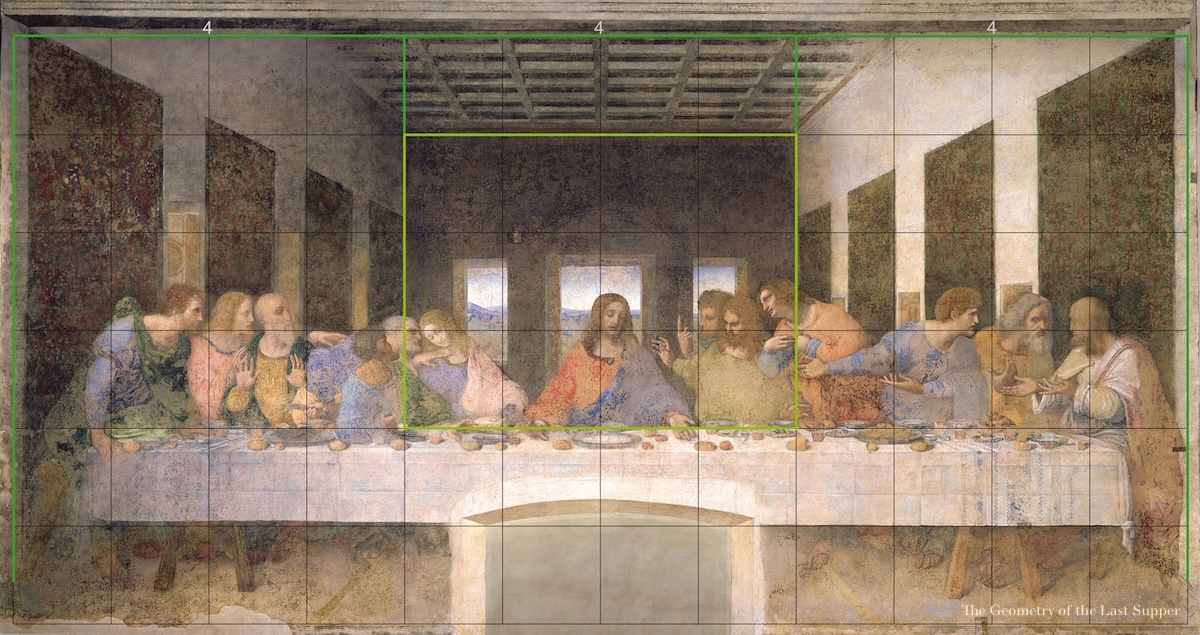The Grid #1

Beneath even the most expressive works of art, there can lie a framework of quiet, deliberate order.
The Last Supper features a coffered ceiling whose evenly spaced beams subtly guide the viewer’s eye. This architectural detail may well have inspired art historian Thomas Brachert to overlay a 12-by-6 grid onto an image of the painting, revealing an underlying framework that could have informed Leonardo da Vinci’s compositional choices.
Far from mere speculation, Brachert’s grid is now widely accepted by scholars as a valuable tool for understanding the painting's composition. What emerged from this simple overlay was a clearer sense of how the figures, gestures, and architectural elements are distributed with remarkable precision. The painting’s balance, rhythm, and narrative intensity appear far from accidental — instead, they rest on a foundation of geometric planning.
📐 Notice how the tapestries align perfectly with the grid… and how each wall spans exactly four units.
Can you see how it also works vertically, from ceiling to floor?